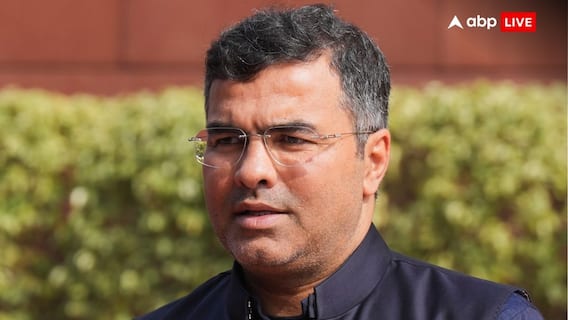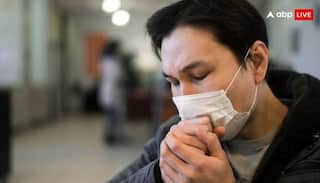World Lymphoma Awareness Day 2023: What Is Lymphoma? Signs, Symptoms, Treatment And All That You Need To Know
Lymphoma is a type of blood cancer characterized by the enlargement of lymph nodes in the body, leading to various symptoms.

New Delhi: World Lymphoma Awareness Day is celebrated every year on September 15 to raise awareness about the disease and educate the public about it. It's history dates back to 2002, when the Lymphoma Coalition was founded as an international network of lymphoma patient organisations around the world. The Lymphoma Coalition provided a platform where the organisations could collaborate, share resources and advocate for Lymphoma patients. With this, two years later, the inaugural World Lymphom Awareness Day was observed on September 15, 2004.
In this article, we have sought the opinion of experts who has explained all about Lymphoma. But before that, let's know what lymphoma is all about.
What Is Lymphoma?
Dr. Chandrakant Lahane, who is a Haematologist at Sahyadri Super Speciality Hospitals, Hadapsar, Pune said, "Lymphoma is a type of blood cancer characterized by the enlargement of lymph nodes in the body, leading to various symptoms. There are two main types of lymphoma: Hodgkin's lymphoma and non-Hodgkin's lymphoma."
"The treatment for lymphoma primarily involves chemotherapy. More recently, chemo-immunotherapy has been used, thanks to advances in targeted molecules for different types of lymphoma and non-Hodgkin's lymphoma," he went on to say.
Symptoms Of Lymphoma:
Dr Sameer Tulpule, who is a Consultant, General Haematology, Haemato-Oncology and Bone Marrow Transplantation, at Kokilaben Dhirubhai Ambani Hospital Mumbai said, "The commonest early symptom of lymphoma is painless swelling of the lymph nodes in one or more areas of the body, typically the neck, armpits or groin."
In addition, he said that lymphoma can cause other symptoms such as
- Drenching sweats commonly at night
- Loss of weight
- Loss of appetite
- Generalised itching
- High fever which does not appear to have any obvious cause
"Sometimes, the enlarged lymph nodes can occur in areas which cannot be seen by the naked eye, e.g. in the chest or the abdomen. These in turn can give rise to pressure symptoms like cough, swelling of the face and abdominal or back pain, although this is less common," Dr Sameer continued to say.
"At times, it may also happen that the lymphoma spreads to the bone marrow. This is more common with non-Hodgkin's lymphoma than with Hodgkin's lymphoma," added Dr. Sameer.
This in turn can give rise to symptoms like
- Tiredness and fatigue if the haemoglobin is low
- Recurrent infections if the white count is low And
- Bleeding and bruising if the platelet count is low
He also mentioned some cases where the lymphoma is detected incidentally when undergoing examination and testing for other conditions and does not seem to have any of these symptoms.
So, he advised patients to visit their nearest doctor or any multispecialty hospital with full time availability of the specialist services if they experience any of the symptoms mentioned above, for a clinical examination and blood tests.
Risk Factors Of Lymphoma?
Dr. Chandrakant Lahane mentioned the risk factors for lymphoma which are need to be taken care of. They are as follows:
- Viral Infections: Certain viral infections like Epstein-Barr virus (EBV), hepatitis C virus, and HTLV virus are associated with an increased risk of developing lymphoma.
- Old Age: Lymphoma is more common in older individuals, although not all elderly people will develop it.
- Family History: Having a family history of lymphoma can elevate the risk for other family members.
- Bacterial Infections: Some bacterial infections, such as H. pylori, Campylobacter, and Chlamydia, have been linked to lymphoma development.
- Weakened Immune System: Conditions like HIV or post-transplant lymphoproliferative disorder can weaken the immune system, making individuals more susceptible to lymphoma.
- Autoimmune Disorders: Autoimmune conditions like rheumatoid arthritis, Sjögren's syndrome, or Hashimoto's disease may increase the risk of lymphoma.
- Previous Cancer Treatment: Individuals with a history of cancer treatment may be at a higher risk of developing lymphoma.
- Environmental Exposures: Prolonged exposure to certain environmental factors or toxins can also be a risk factor for lymphoma.
"It's important to note that while these factors can increase the risk of lymphoma, not everyone with these risk factors will develop the disease, and lymphoma can occur in individuals without any of these risk factors as well. Regular medical check-ups and early detection are crucial for managing the disease effectively," he said.
Treatments Of Lymphoma:
Dr (Prof). Vijay Patil, who is a Consultant, Medical Oncology at P. D. Hinduja Hospital & Medical Research Centre, Khar shared the latest treatment options available for lymphoma.
He said, "There are several emerging therapies and treatment strategies for lymphoma. However, it is important to note that the field of cancer research and therapy is constantly evolving."
Here are some of the latest therapy approaches for lymphoma up to that point:
- Immunotherapy: Immunotherapy has been a major focus in cancer treatment, including lymphoma. Checkpoint inhibitors, such as drugs targeting PD-1 or PD-L1, have shown promise in treating certain types of lymphoma.
- Chimeric Antigen Receptor (CAR) T-Cell Therapy: CAR-T cell therapy involves modifying a patient's own T cells to express a receptor that can target cancer cells specifically. CAR-T therapies, such as axicabtagene ciloleucel (Yescarta) and tisagenlecleucel (Kymriah), have been approved for certain lymphoma types.
- Precision Medicine: Advances in genomics and molecular profiling have led to more personalized treatment approaches. Identifying specific genetic mutations or biomarkers in lymphoma cells allows doctors to tailor treatment to the individual patient, increasing the likelihood of a successful outcome.
- Targeted Therapies: Targeted therapies are designed to attack specific molecules or pathways involved in lymphoma growth. Examples include drugs like ibrutinib and venetoclax for certain types of non-Hodgkin lymphoma (NHL), and brentuximab vedotin for Hodgkin lymphoma.
- Bispecific Antibodies: Bispecific antibodies are engineered antibodies that can simultaneously bind to two different targets, often involving cancer cells and immune cells. Blinatumomab is an example of a drug used in the treatment of certain types of NHL.
- Radioligand Therapy: Radioligand therapy, such as ^177Lu-PSMA for lymphoma, uses radioactive molecules to target and kill cancer cells. It has shown promise in clinical trials.
- Novel Chemotherapy Agents: New chemotherapy agents and combinations are continually being explored to improve the efficacy and reduce the side effects of traditional chemotherapy
- Maintenance Therapy: In some cases, maintenance therapy with drugs like rituximab may be used to prolong remission in certain types of lymphoma.
- Adoptive Cell Therapies: In addition to CAR-T cell therapy, other adoptive cell therapies, like T-cell receptor (TCR) therapies, are being investigated for lymphoma treatment.
- Combination Therapies: Oncologists are increasingly exploring combinations of different treatments, such as immunotherapy with chemotherapy or targeted therapy, to maximize treatment outcomes.
- Clinical Trials: Participating in clinical trials is essential for testing and advancing new therapies for lymphoma. Many novel treatments are initially evaluated in clinical trials to assess their safety and efficacy.
It is important to keep in mind that the choice of therapy depends on the specific type and stage of lymphoma as well as individual patient factors. Treatment plans are determined by oncologists based on the latest research findings and guidelines.
For the most up-to-date information on lymphoma therapies, I recommend consulting with a medical oncologist or referring to reputable sources such as the National Cancer Institute (NCI) or major cancer centers. They can provide information on the latest developments and available treatment options.
Trending News
Top Headlines








































